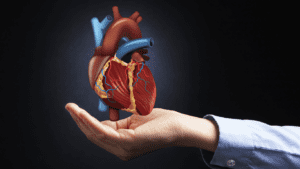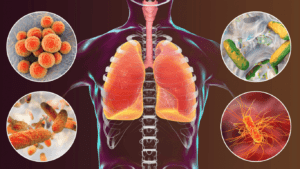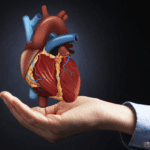Chronic Obstructive Pulmonary Disease (COPD) is a progressive health problem affecting millions of people worldwide. It is characterized by persistent blockage of the airways and lung damage. The most common causes include cigarette smoke, air pollution and long-term exposure to dust and chemicals. The shortness of breath, chronic cough and frequent respiratory infections caused by COPD can significantly affect patients' daily activities and overall quality of life. However, instead of despairing, in this article we will share effective strategies and suggestions on how people living with COPD can improve their quality of life.
Medical Treatment and Drug Use
The first step in treating COPD is to strictly follow the medical treatments prescribed by your doctor to slow the progression of the disease and control symptoms. These treatments usually include inhaled corticosteroids, long-acting bronchodilators and oxygen therapy when needed. These medicines dilate the airways, making breathing easier and reducing inflammation. Depending on the severity of the disease, your doctor may make additions or changes to your treatment plan. Therefore, regular doctor check-ups and open communication are an essential part of the treatment process.
Avoiding Smoking and Other Harmful Substances
Smoking is the biggest risk factor for developing COPD. Quitting smoking can significantly slow or even stop the progression of the disease. The process of quitting smoking can be challenging, but supportive methods such as nicotine replacement therapy and guidance from health professionals can make it easier. It is also important to avoid secondhand smoke and avoid other respiratory irritants such as air pollution, dust and chemicals.
Physical Activity and Exercise
Regular physical activity and exercise can increase the breathing capacity and improve the overall endurance of COPD patients. Walking, swimming and light resistance exercises can help reduce shortness of breath. However, talk to your doctor before starting any exercise program. Your doctor will recommend the most appropriate and safe types of exercise for you.
Nutrition and Diet
A healthy diet is also important for people living with COPD. A balanced diet helps your body fight infections and improves your overall health. Recommended foods include fruits and vegetables rich in antioxidants, high-quality protein sources and healthy fats. Also, excess weight can increase shortness of breath, so it is important to maintain a healthy body weight.
Psychological Support and Social Life
Coping with COPD is not only a physical challenge, but also a mental and emotional one. Psychological support can make a big difference in coping with the disease. Social support from family, friends and support groups can improve your emotional well-being. If necessary, working with a psychologist or psychiatric counselor can help you overcome emotional difficulties.
Conclusion
Living with COPD can be challenging, but with appropriate treatment and lifestyle changes, the disease can be managed and quality of life can be significantly improved. Stick to your treatment plan, make healthy lifestyle choices and seek resources for emotional support. These approaches allow you to lead a more active and fulfilling life while living with COPD.























